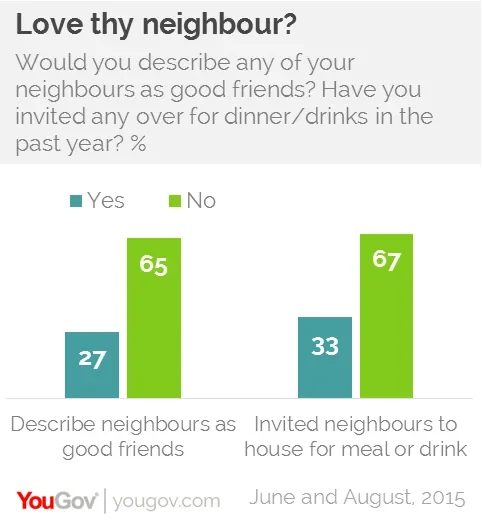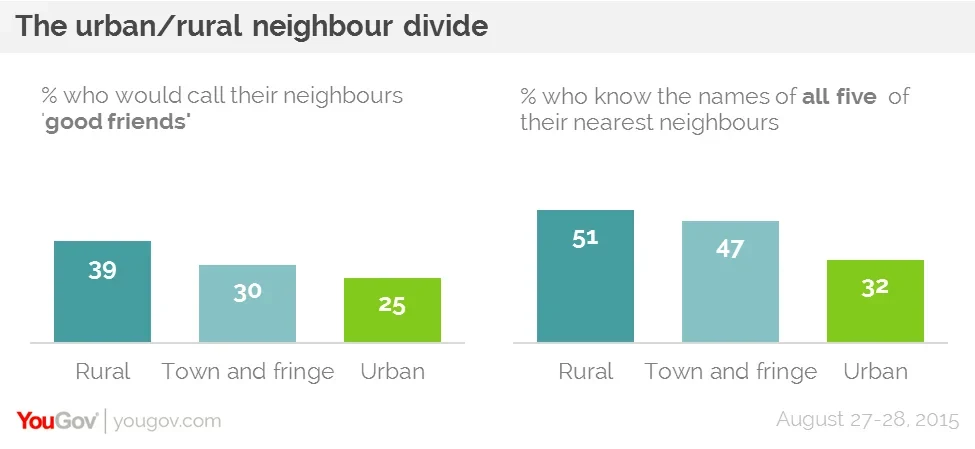Only 1 in 4 British people would call their neighbours good friends – but in rural areas the figure is much higher
Looking at postcards from Britain, you might think it’s all street parties, shared laughs over hedges or cups of tea next door. Switch on a soap opera, and you’ll probably see neighbours waging war on one each other over noise, parking or boundaries. New YouGov research looks at the realities of neighbourhood life in Britain, revealing it as unhostile, but very far from a hotbed of community.

Few say they get on badly with their immediate neighbours (6%) or people who live near them (3%), and 71% of British people with neighbours say they speak to them every week (45%) or day (26%) .
However the vast majority (65%) say they would not call any of their neighbours ‘good friends’, and an even greater majority (67%) have not invited any neighbours into their house for a meal or drink in the past year.
This is something which varies significantly by location. Despite the proximity, only 32% of people living in urban areas know all five of their nearest neighbours’ names. In rural areas most (51%) do, and in town and fringe parts 47% do.

The midlands/Wales and the North are the most neighbourly areas, with 32% and 31% respectively calling their neighbours good friends compared to 26% in the south, 21% in Scotland and only 19% in London.
Age also plays a huge role, suggesting a decline in neighbourliness. Fully 44% of over-60s would call their neighbours good friends and 46% have had neighbours round for a meal or drink. Having lived in the area for a longer time may account for some of the difference, but there is even a significant difference between over-60s and the middle-aged generation – only 26% of 40-59 year olds would call their neighbours good friends.
Programmes with titles such as ‘Neighbours from Hell’ and ‘Extreme Nightmare Neighbours Next Door’ gained popularity for a time, but most British people have been spared the real-life trauma. 17% say they’re had a serious disagreement with a neighbour in the past few years, 8% of which have resulted in police or court action. The top reasons are noise (26%), parking (18%) and boundary disputes (15%).
PA image








